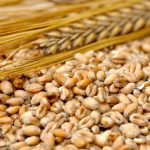“Consolidation of the fertilizer industry worldwide is far from over.” – JOERGEN OLE HASLESTAD Aprotracted takeover battle in the global fertilizer industry ended this week with a victory for CF Industries Holdings Inc., but the losers are unlikely to wait long before climbing back into the fray. CF Industries’ agreement to acquire Terra Industries brought



